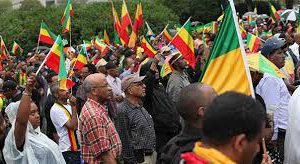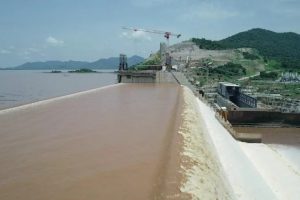According to the United Nations Guiding Principles on Internal Displacement, internally displaced persons (IDPs) are “persons or groups of persons who have been forced or obliged to flee or to leave their homes or places of habitual residence, in particular as a result of or to avoid the effects of armed conflict, situations of generalized violence, violations of human rights or natural or human-made disasters, and who have not crossed an internationally recognized state border.”
While the UN Guiding Principles on Internal Displacement are not legally binding, their authority has been recognized globally, particularly as they draw from international humanitarian and human rights law. The Africa Union in particular has codified the UN Guiding Principles on Internal Displacement with the 2009 Convention for the Protection and Assistance of Internally Displaced Persons in Africa (the so-called “Kampala Convention,” preceded by the 2006 Great Lakes Protocol on the Protection and Assistance to Internally Displaced Persons).
However, there is no common and universally agreeable definition of internally displaced people among scholars of the field, but they all agree that internally displaced persons (IDPs) often live in overcrowded, filthy locations where jobs and services are few. These dire circumstances have worsened due to the health risks and socio-economic impacts of the pandemic. Moreover, internal displacement people have denied innocent people access to food, shelter, and medicine and exposes them to all manner of violence.
IDPs are common in developing countries like Ethiopia. The reform measures that have taken place in Ethiopia in mid-2018, especially, the opening up of political space have allowed Ethiopians to express long-standing grievances, often over land, border demarcations, access to state resources, and perceived discrimination against their community or ethnic group, without fear of retribution.
Prime Minister Abiy once told the House of People Representatives that behind all the conflicts and the instability of the country, following the reform, there are fictions that instigate war and conflict. This statement is true when someone sees and analyses what the terrorist TPLF group is doing currently. Apart from the Tigray region, the TPLF has launched incursions into the neighbouring regions Afar and Amhara. The spillover of incursion into neighbouring Afar and Amhara regions continues to affect civilians with increased food insecurity, increased displacement, and disruption of livelihoods.
Amhara regional government spokesperson Gizachew Muluneh told local media that the attacks of the terrorist TPLF group have forced many people to leave their original places. These internally displaced people in the Amhara region need various support including food, shelter, medicine, and so on. Likewise, the Afar regional government spokesperson Ahmed Koloyta also confirmed that the terrorist TPLF group has forced the people of Afar to evacuate their place fearing the incursion which made the IDPs.
Cognizant of this, the Ethiopian diaspora and diaspora communities have shown their commitment to providing humanitarian aid to internally displaced people. They have been contributing to IDPs both in cash and kind.
The Ethiopian Diaspora Director-General Selamawit Dawit told The Ethiopian Herald that the Ethiopian Diasporas have been contributing money for internally displaced persons found across the nation. Apart from the remittances, the Great Ethiopian Renaissance Dam (GERD), and so on, they have contributed more than 700 million Birr to Ethiopian National Defense Forces (ENDF) and internally displaced people.
Ethiopian Ambassador to the UK Teferi Melesse said that currently the Ethiopian diaspora’s solidarity, union, and unity are strengthening more than ever. Besides, the Diasporas are participating in different occasions to show their commitment to their country.
“the diasporas who live in the UK have contributed more than 10 million birrs to Ethiopian National Defense Forces and internally displaced people. The money was collected during the one-month (August) fundraising event”, he explained.
According to Ethiopian Ambassador to the United States of America Fitsum Arega, Ethiopian has passed through various challenges in the last Ethiopian year. Within these ups and downs, the contribution of the Ethiopian Diaspora and their commitment has been enormous. Ethiopian Professional Association in Kenya Ethiopian Ambassador to Kenya Meles Alem on the occasion said that Ethiopians who live in Kenya have contributed to the construction of the Grand Ethiopian Renaissance Dam and the fight against the Covid-19 virus and so on. Presently, they have also contributed more than one million Birrs to rehabilitate IDPs in Ethiopia.
Ethiopian Ambassador to Belgium, Luxembourg, and the EU institutions Hirut Zemene in her part noted that the Ethiopian diaspora who live in Brussels and surrounding states have also contributed more than 800, 000 Birrs to Ethiopian National Defense Forces and IDPs. Besides, the Ethiopian Community Association in Nuremberg, Germany has raised 1,088,000 Birrs for the construction of the Grand Ethiopian Renaissance Dam and the affected people.
Ethiopian diasporas have indeed contributed to internally displaced people through by their profession per their capacity regardless of age, race, religion, and so on. Chairperson of Ethiopian Center for Peace and Progress Abel Gashe told The Ethiopian Herald that “there are a lot of things that need to be done by both the federal and local government to take them back to their original places. Since the diasporas are part and parcel of this community, they have been contributing to IDPs. But the IDPs say much remains to be done”.
It is a general fact that internal displacement is a serious problem in Ethiopia today than ever before. Persons or groups who have been forced to flee their homes and habitual residences suddenly or unexpectedly in large numbers are increasing in the recent time than ever before due to communal violence or ethnic tensions, and so on.
Moreover, the recent attacks by the terrorist TPLF on Amhara and Afar regional states has forced many people to leave their place. This, as a result, made the life of IDPs problematic. Hence, the contribution of the diasporas has significantly helped these people.
UNHCR in 2006 stated that displacement breaks up families and severs community ties. It leads to unemployment and limits access to land, education, food, and shelter. The displaced are particularly vulnerable to violence. The internally displaced frequently suffer the highest mortality rates in humanitarian emergencies. Therefore, they need support from both local and international communities. Ambassador Fitsum Arega, called Ethiopian diasporas to continue to strengthen their support for those internally displaced people by the war. Because it will be a time of hope for our people.
IDPs need support and follow-ups on the side of the administration. They have to be also managed properly since their inflows stretch domestic medical resources thin; divert all resources away from normal care, and they may have specific health needs related to war trauma that overwhelm the host. Ethiopians, therefore, should be able to control the flows of IDPs not to be directly or indirectly the insecurity and instability of the nation. Here, the diasporas apart from their financial support should offer their support in various ways.
BY EPHREM ANDARGACHEW
ETHIOPIAN HERALD 19 SEPTEMBER 2021




